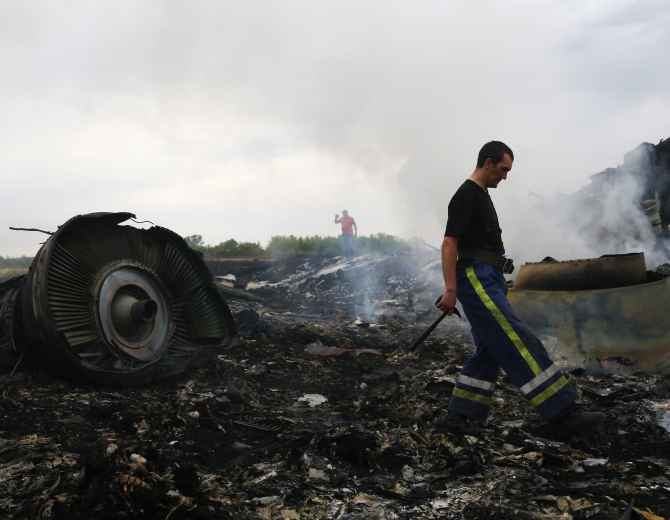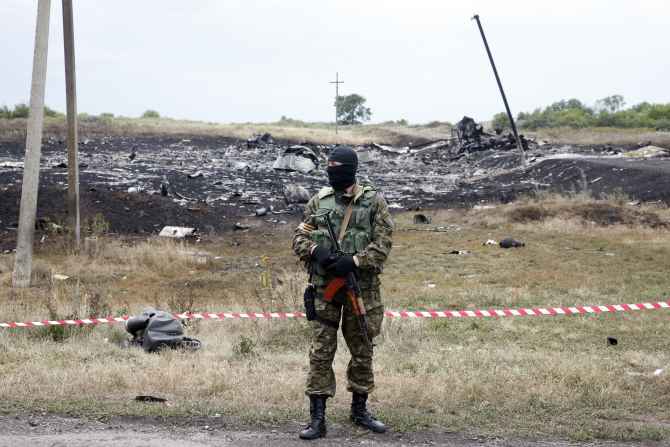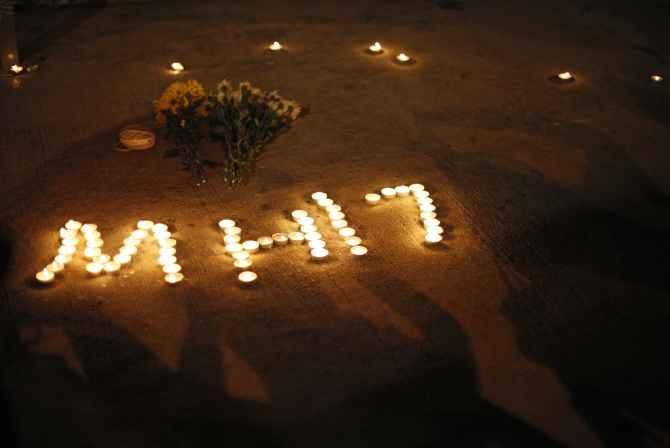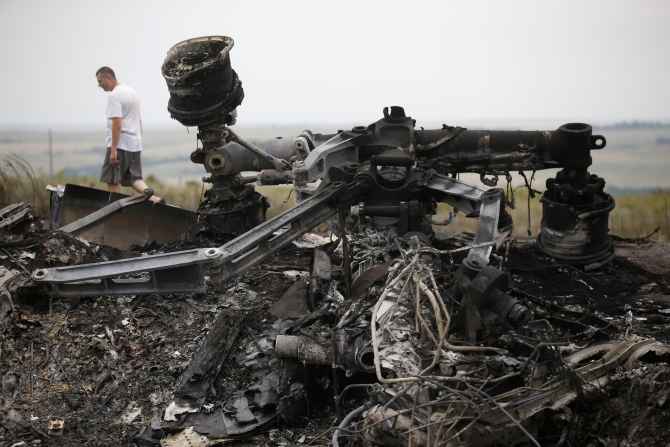
The tragedy of MH17 should awaken the world to the sobering reality that the "non-state actor" charade has gone too far, notes Nitin Pai.
Here's what happened: Russian proxy fighters in the Donetsk region of Ukraine shot down a Malaysia Airlines civilian aircraft -- flight MH17, carrying 298 people -- by mistake, using a Russian surface-to-air missile system.
The rebels had been shooting down Ukrainian military aircraft over the last several weeks, and thought they had taken down one more on July 17 before they realised that their missile hit a civilian aircraft.
Instead of admitting their mistake they began covering their tracks, deleting social media posts, inventing cover stories, blocking investigators and hiding their missile launchers.
Ordinary people who can access the internet and employ reason will arrive at more or less the above conclusion. The world's governments, though, are likely to believe "non-state actors did it".
Just like how they believed that the 26/11 attacks on Mumbai and the 1947 invasion of Jammu and Kashmir were carried out by non-state actors.
The writer is director of the Takshashila Institution, an independent public policy think tank
Please …

The world also believed that the 1980s Mujahideen were local resistance fighters (who somehow had shoulder-fired anti-aircraft missiles), and the 1990s Taliban were a group of armed theology students (who somehow had the organisation to conquer a battle-hardened country).
Half of India's population might be too young to remember this, but there was a time when the international community would simply not believe that the militants ravaging Kashmir were Pakistan's proxies.
Yes, there is a need to have adequate evidence before taking official positions, but it is a fool's errand to try to gather the evidence that will persuade the culprit.
President Vladimir Putin is unlikely to believe any evidence of Russian culpability in downing MH17 even if his country allows evidence to find its way into the hands of foreign investigators.
Please …

For over a decade, United States president Ronald Reagan didn't believe that Pakistan was producing nuclear weapons, and his administration blackballed a young Central Intelligence Agency analyst who was working on the case.
Even now, many of the world's governments officially believe that Abdul Qadeer Khan was running a private nuclear supermarket, as a non-state actor without any connections to the Pakistani military-jihadi complex and its Chinese and North Korean partners.
Even our own government in New Delhi is patiently presenting evidence to the (always adjourned) Pakistani courts against members of the Lashkar-e-Tayiba who attacked Mumbai.
Please …

Why do the world's governments resort to charade and denial? Well, because it is in their interests to do so. The pronouncement of guilt presumes that the culprit will be punished.
Who wants to punish a state that has nuclear weapons, especially if some third country is the victim? The world's governments calculate that it is far safer to grin and bear the transgression -- however brazen it may be -- than engage in the costly exercise of punishing the transgressor.
So Russia, Pakistan, China, North Korea and, yes, the United States, get away with murder. Literally.
The use of non-state actors, therefore, involves a state operating under plausible deniability on one side. On the other are the world's big powers employing deliberately high credulity. In between are the hapless victims who will be privately believed but publicly told that the evidence is just not conclusive.
Please …

Covert wars and the use of proxy fighters is not a new phenomenon. However, developments in international law (which have made open aggression illegal) and the advent of nuclear weapons (which deter punishment) over the past seven decades have made non-state actors more attractive to countries that wish to intervene in other countries' affairs.
While not always effective, they have been useful enough for many states to rely on them. Pervez Musharraf even called Pakistan's militant groups "strategic assets", unwittingly revealing how they are an integral part of his country's state policy.
The tragedy of MH17 should awaken the world to the sobering reality that the "non-state actor" charade has gone too far.
Once sophisticated weapons are put in the hands of groups under deliberately weak and tenuous supervision, even "mistakes" can have grave consequences. For years we used to worry about shoulder-fired anti-aircraft missiles (that the United States and Russia had put in the hands of Afghan militants and now-overthrown West Asian regimes respectively) posing a risk to civilian aircraft.
Please …

That danger has only been exacerbated in recent times, with several thousands now in the hands of non-state actors. Last week's incident over Ukrainian skies, which involved a medium-range surface-to-air missile, has heightened the threat.
For the beast to be reined in, the world's governments must confront the states behind the non-state actors and begin by stopping the pretence of being fastidious about evidence. Punishment will still be as difficult to mete out, but merely identifying the culprit will be an improvement.
Legitimately, it is the United Nations Security Council that should do the naming and shaming. Unfortunately, its composition does not suggest that it will be up to this task.
One more reason why its composition must change.